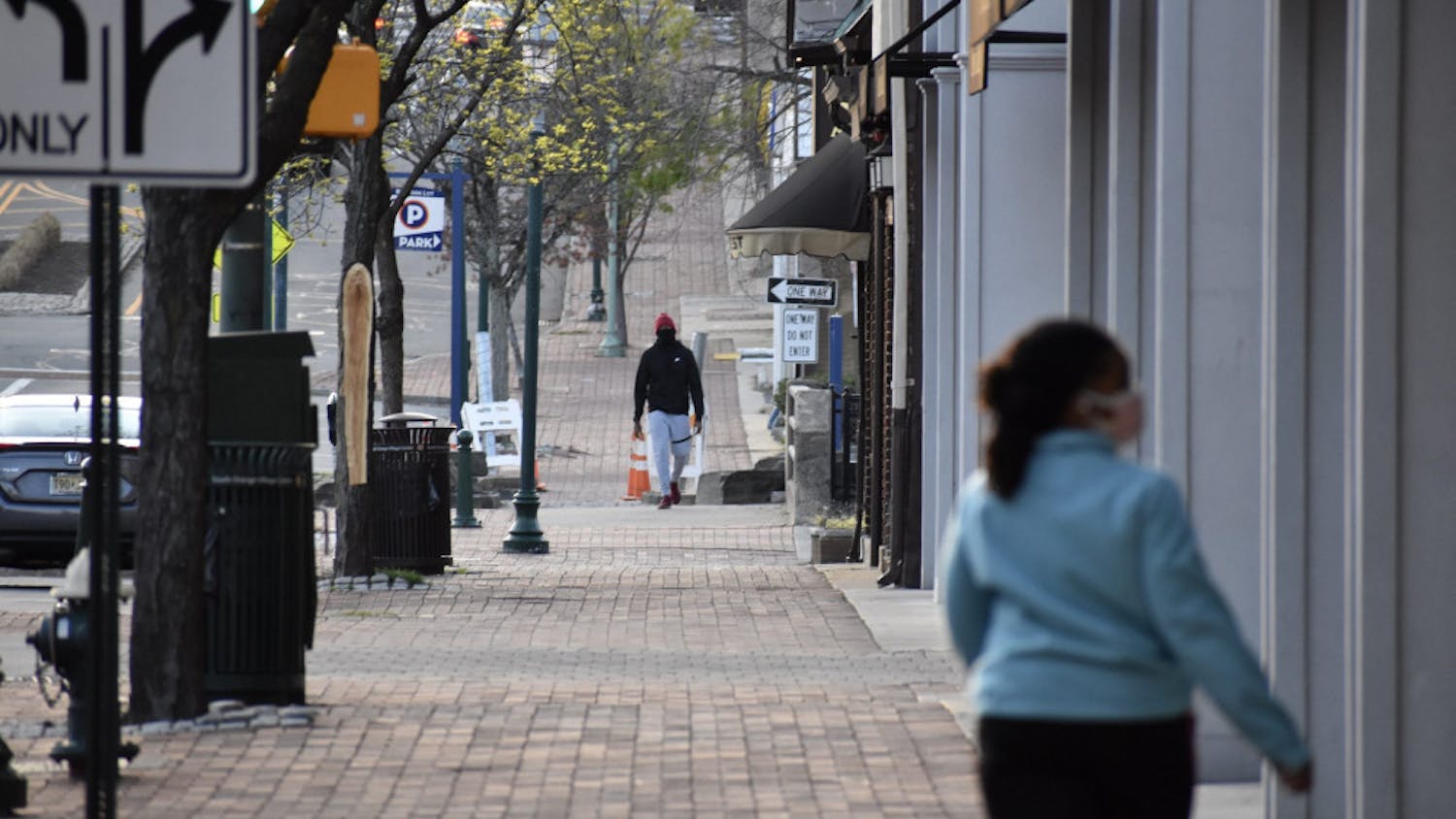Between managing a course load of six classes, finding an internship, working at The Setonian and joining clubs, there is not enough time in the day to complete my daily to-do list.
 This usually leads to anxiety and worrying, for the work that is left undone hangs over my head, no matter how much I plan ahead.
It’s no secret that stress affects college students in many ways. Beginning my sophomore year at SHU, I have found that I am just as stressed as I was my freshman year. Even writing this column stressed me out because I was wondering when I would find the time for it.
Everyone, especially students, experiences some type of stress and anxiety, just at varying degrees.
According to a Spring 2015 survey completed by the American College Health Association (ACHA), 15.8 percent of college students were diagnosed with or treated for anxiety within the last 12 months. This number would be higher, but often students don’t seek help because they are unaware they have anxiety, do not want help or are not diagnosed correctly by professionals.
The same survey said that within the last 12 months, 20.8 percent of college students felt overwhelming anxiety. This is an increase from the fall 2015 survey, which reported that 18 percent of students felt overwhelming anxiety.
This increase makes me believe that students today are feeling more stressed out as a result of schoolwork, the pressure to find jobs and internships, and everyday life.
In my personal experience, stress and anxiety lead to little to no sleep. Some students end up needing to take medication. There must be better ways for avoiding anxiety.
Doubling down on weekends is one method I use. I try to get most of my workload done during the weekend while catching up on my favorite TV shows. That way I have less to do during the school week. However, even then I often find myself squeezed for time.
While some pressure can be good for us, too much can negatively affect people.
Last week, a psychology professor of mine asked students to raise their hands if they were taking six or more courses. He then told us that statistically speaking, students who take six or more courses usually fail or drop a class.
This momentarily worried me as I looked around at all the raised hands. Which one of us would become part of that statistic? Last semester I took 18 credits, but as I get further away from core classes and into specialized classes for my major, I understand what my professor meant.
The Anxiety and Depression Association of America’s website states that anxiety disorders are among the most common health problems on college campuses. It also said that 40 million adults suffer from an anxiety disorder, with 75 percent of them experiencing their first anxiety episode by age 22.
While anxiety can be difficult to deal with, there are ways to manage it. I plan to stay organized, ask for help when I need it and take short breaks in between assignments so I’m not overwhelmed. Especially now that this article is written, edited and published, I’ve learned through my own research that by following these tips I will get my work done much faster and also find time to de-stress.
Samantha Todd is a journalism major from Middlesex, N.J. She can be reached at samantha.todd@student.shu.edu or on Twitter @SamanthaLTodd.
This usually leads to anxiety and worrying, for the work that is left undone hangs over my head, no matter how much I plan ahead.
It’s no secret that stress affects college students in many ways. Beginning my sophomore year at SHU, I have found that I am just as stressed as I was my freshman year. Even writing this column stressed me out because I was wondering when I would find the time for it.
Everyone, especially students, experiences some type of stress and anxiety, just at varying degrees.
According to a Spring 2015 survey completed by the American College Health Association (ACHA), 15.8 percent of college students were diagnosed with or treated for anxiety within the last 12 months. This number would be higher, but often students don’t seek help because they are unaware they have anxiety, do not want help or are not diagnosed correctly by professionals.
The same survey said that within the last 12 months, 20.8 percent of college students felt overwhelming anxiety. This is an increase from the fall 2015 survey, which reported that 18 percent of students felt overwhelming anxiety.
This increase makes me believe that students today are feeling more stressed out as a result of schoolwork, the pressure to find jobs and internships, and everyday life.
In my personal experience, stress and anxiety lead to little to no sleep. Some students end up needing to take medication. There must be better ways for avoiding anxiety.
Doubling down on weekends is one method I use. I try to get most of my workload done during the weekend while catching up on my favorite TV shows. That way I have less to do during the school week. However, even then I often find myself squeezed for time.
While some pressure can be good for us, too much can negatively affect people.
Last week, a psychology professor of mine asked students to raise their hands if they were taking six or more courses. He then told us that statistically speaking, students who take six or more courses usually fail or drop a class.
This momentarily worried me as I looked around at all the raised hands. Which one of us would become part of that statistic? Last semester I took 18 credits, but as I get further away from core classes and into specialized classes for my major, I understand what my professor meant.
The Anxiety and Depression Association of America’s website states that anxiety disorders are among the most common health problems on college campuses. It also said that 40 million adults suffer from an anxiety disorder, with 75 percent of them experiencing their first anxiety episode by age 22.
While anxiety can be difficult to deal with, there are ways to manage it. I plan to stay organized, ask for help when I need it and take short breaks in between assignments so I’m not overwhelmed. Especially now that this article is written, edited and published, I’ve learned through my own research that by following these tips I will get my work done much faster and also find time to de-stress.
Samantha Todd is a journalism major from Middlesex, N.J. She can be reached at samantha.todd@student.shu.edu or on Twitter @SamanthaLTodd.





